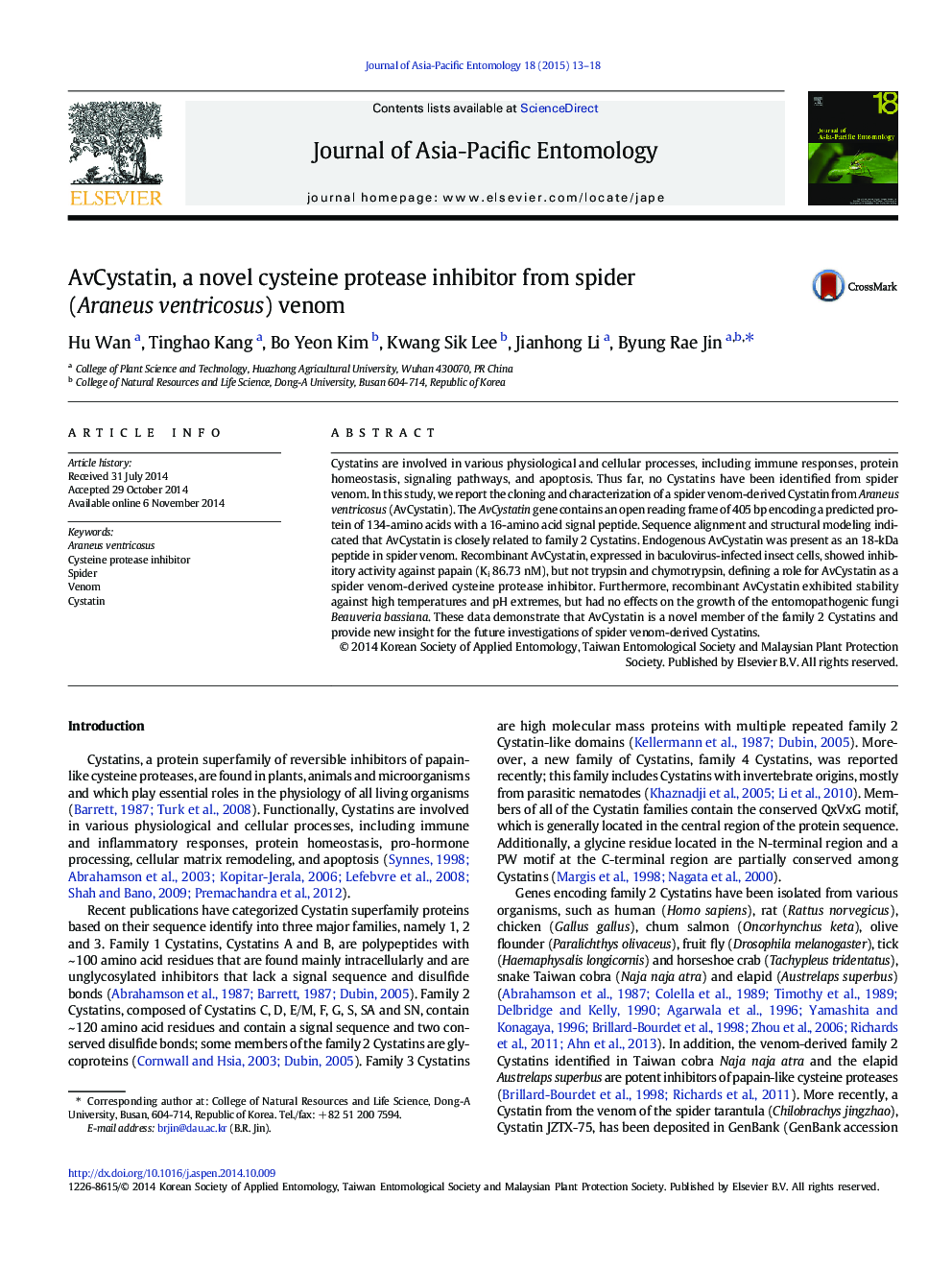| Article ID | Journal | Published Year | Pages | File Type |
|---|---|---|---|---|
| 4524623 | Journal of Asia-Pacific Entomology | 2015 | 6 Pages |
•AvCystatin is a spider (Araneus ventricosus) venom cysteine protease inhibitor.•AvCystatin is a spider venom component.•AvCystatin inhibits papain, but not trypsin and chymotrypsin.•AvCystatin exhibits stability against high temperatures and pH extremes.•AvCystatin is a novel member of the family 2 Cystatins.
Cystatins are involved in various physiological and cellular processes, including immune responses, protein homeostasis, signaling pathways, and apoptosis. Thus far, no Cystatins have been identified from spider venom. In this study, we report the cloning and characterization of a spider venom-derived Cystatin from Araneus ventricosus (AvCystatin). The AvCystatin gene contains an open reading frame of 405 bp encoding a predicted protein of 134-amino acids with a 16-amino acid signal peptide. Sequence alignment and structural modeling indicated that AvCystatin is closely related to family 2 Cystatins. Endogenous AvCystatin was present as an 18-kDa peptide in spider venom. Recombinant AvCystatin, expressed in baculovirus-infected insect cells, showed inhibitory activity against papain (Ki 86.73 nM), but not trypsin and chymotrypsin, defining a role for AvCystatin as a spider venom-derived cysteine protease inhibitor. Furthermore, recombinant AvCystatin exhibited stability against high temperatures and pH extremes, but had no effects on the growth of the entomopathogenic fungi Beauveria bassiana. These data demonstrate that AvCystatin is a novel member of the family 2 Cystatins and provide new insight for the future investigations of spider venom-derived Cystatins.
Graphical abstractFigure optionsDownload full-size imageDownload as PowerPoint slide
